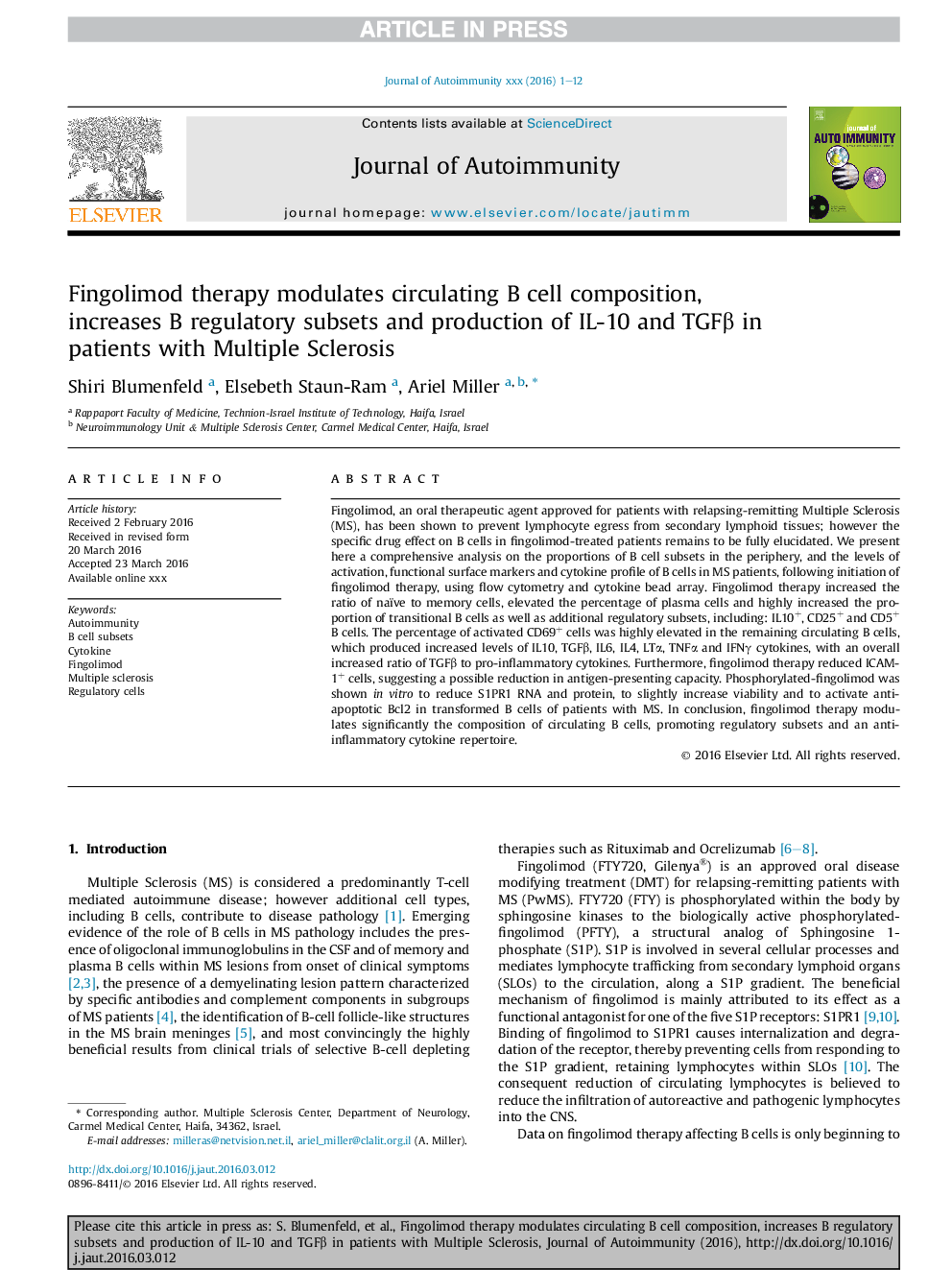| Article ID | Journal | Published Year | Pages | File Type |
|---|---|---|---|---|
| 6119112 | Journal of Autoimmunity | 2016 | 12 Pages |
Abstract
Fingolimod, an oral therapeutic agent approved for patients with relapsing-remitting Multiple Sclerosis (MS), has been shown to prevent lymphocyte egress from secondary lymphoid tissues; however the specific drug effect on B cells in fingolimod-treated patients remains to be fully elucidated. We present here a comprehensive analysis on the proportions of B cell subsets in the periphery, and the levels of activation, functional surface markers and cytokine profile of B cells in MS patients, following initiation of fingolimod therapy, using flow cytometry and cytokine bead array. Fingolimod therapy increased the ratio of naïve to memory cells, elevated the percentage of plasma cells and highly increased the proportion of transitional B cells as well as additional regulatory subsets, including: IL10+, CD25+ and CD5+ B cells. The percentage of activated CD69+ cells was highly elevated in the remaining circulating B cells, which produced increased levels of IL10, TGFβ, IL6, IL4, LTα, TNFα and IFNγ cytokines, with an overall increased ratio of TGFβ to pro-inflammatory cytokines. Furthermore, fingolimod therapy reduced ICAM-1+ cells, suggesting a possible reduction in antigen-presenting capacity. Phosphorylated-fingolimod was shown in vitro to reduce S1PR1 RNA and protein, to slightly increase viability and to activate anti-apoptotic Bcl2 in transformed B cells of patients with MS. In conclusion, fingolimod therapy modulates significantly the composition of circulating B cells, promoting regulatory subsets and an anti-inflammatory cytokine repertoire.
Related Topics
Life Sciences
Immunology and Microbiology
Immunology
Authors
Shiri Blumenfeld, Elsebeth Staun-Ram, Ariel Miller,
